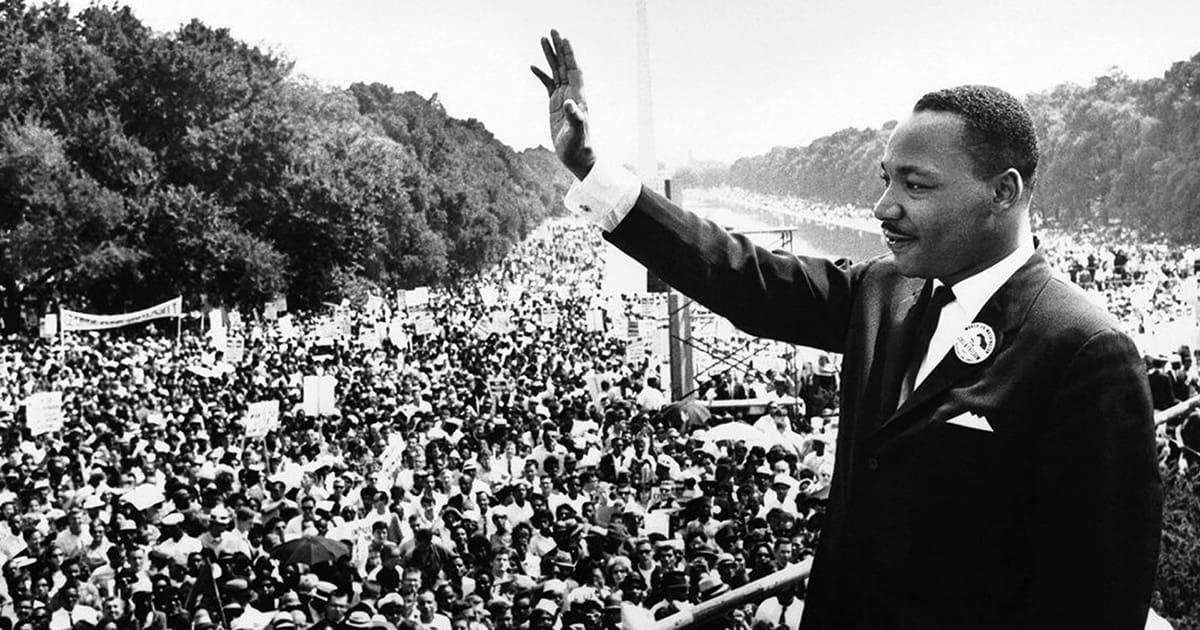The Educational Legacy of Dr. Martin Luther King Jr.
January 19, 2023
Written by Evan Lockhart, Outreach Manager – Office for Institutional Equity and Inclusion
“The Function of Education is to teach one to think intensively and to think critically. Intelligence plus character-that is the goal of true education.”
-Dr. Martin Luther King Jr.
A Brief History Of Dr. King
Rev. Dr. Martin Luther King Jr. Day is a national holiday that was signed into law by President Ronald Reagan in 1983. Occurring on the third Monday of January, MLK day is a celebration of one of the most pivotal leaders of the civil rights movement. During his tenure as a civil rights leader, King oversaw bus boycotts, the voters rights movement, the desegregation of schools, and ultimately, the diversification of an unwilling nation. Rev. Dr. Martin Luther King Jr. was born in Atlanta, Georgia on January 15th, 1929. The son of a preacher, King was a gifted orator, philosopher, and lifelong activist who gave his life in the struggle for racial justice through non-violent activism. On April 4th, 1968 at the age of 39, Dr. King was murdered while standing on the balcony outside of his second-story room at the Lorraine Motel in Memphis, Tennessee. Despite his tragic and untimely death, Dr. King has left a legacy of peace in the face of violence and dignity in the face of subjugation.
From HBCU to PWI
As a product of the HBCU[1] system, Dr. King graduated from Morehouse College in 1948 through a special wartime program to boost enrollment by admitting promising high school students. Upon graduation, King began his religious education at Crozer Theological Seminary after being called to the ministry through social action. While at Crozer, a predominantly white institution[2], King was elected as president of the student body by popular vote. After being elected by a nearly all-white student population he worked through his educational institution to turn his classmates toward justice. In his first speech as president, Dr. King calls for action saying:
We have no alternative but to protest. For many years we have shown amazing patience. We have sometimes given our white brothers the feeling that we liked the way we were being treated. But we come here tonight to be saved from that patience that makes us patient with anything less than freedom and justice.
After earning his doctorate in systematic theology from Boston University at 26, Dr. King took the value of education and used it as a key component in the movement toward racial freedom and justice. King used his name to promote the cause of school integration when in 1958 and 1959 he served as the honorary chairman for two youth marches for integrated schools in Washington DC.
Non-Violent Activism in Perpetuity
As a part of his pedagogy of activism, Dr. King taught his followers techniques of nonviolent resistance that are still used today. In this he instructed us to use our bodies, our voices, and our minds to fight for justice while remembering that the very practice of non-violence is based on the presence of violence. To be a non-violent activist is to put your cause above your mortality. It is to take your life and literally put it on the line for your movement, the severity of which is lost on many today. It is because of this that we must remember the true legacy of the Civil Rights Movement, to fight for justice against horrific violence and subjugation of an entire group of people based solely on the amount of melanin in their skin. When we think of Dr. King, we have to look past the legacy that has been whitewashed by a eurocentric curriculum. We must understand the cost of the progress that has been made because of him and since him. People have died, people are still dying, and our educational system must be steered towards effective change.
Desegregation at CCS
As we work as an institution to value diversity, to seek equity, and to demand justice we must remain cognizant of the evolution of our student body. As we grow into a more vibrant community our commitment to the celebration of all people has grown as well. Through the legacy of Dr. King our goal is to create an environment that is devoid of barriers. An environment where you are seen, where you feel at home, and where you can be your authentic self. As we move forward we all must commit to a pedagogy driven towards diversity, equity, inclusion, and justice. Only then can we truly desegregate our community.
Detroit MLK Community Events
To celebrate the life of Rev. Dr. Martin Luther King Jr. in Detroit please see the below events.
Dr. Martin Luther King Jr. Annual Detroit Artist exhibition
January 20- March 3, 2023
Madonna University
36600 Schoolcraft Rd., Livonia
Meet Gil Ashby Exhibition Speaker
January 20, 2023
4:30-7:00 PM
Educational Resources
Six Podcasts to Listen to in Honor of Martin Luther King Jr. Day
https://www.npr.org/2023/01/13/1148690803/podcasts-mlk-martin-luther-king-jr-day
Americorps MLK Day Tool Kit
https://socialpresskit.com/daysofservice
The Fight For Martin Luther King Jr. Day
https://www.history.com/news/martin-luther-king-jr-day-controversial-origins-of-the-holiday
[1] HBCU- Historically Black Colleges and Universities are institutions of learning established prior to 1964 with the mission of educating black Black Americans. As institutions today HBCUs remain leaders in education producing 70% of black medical doctors in the United States.
[2] Predominately White Institutions or ”PWIs” are institutions that are historically white and have a majority white student body. All institutions outside of HBCU’s are PWI’s
